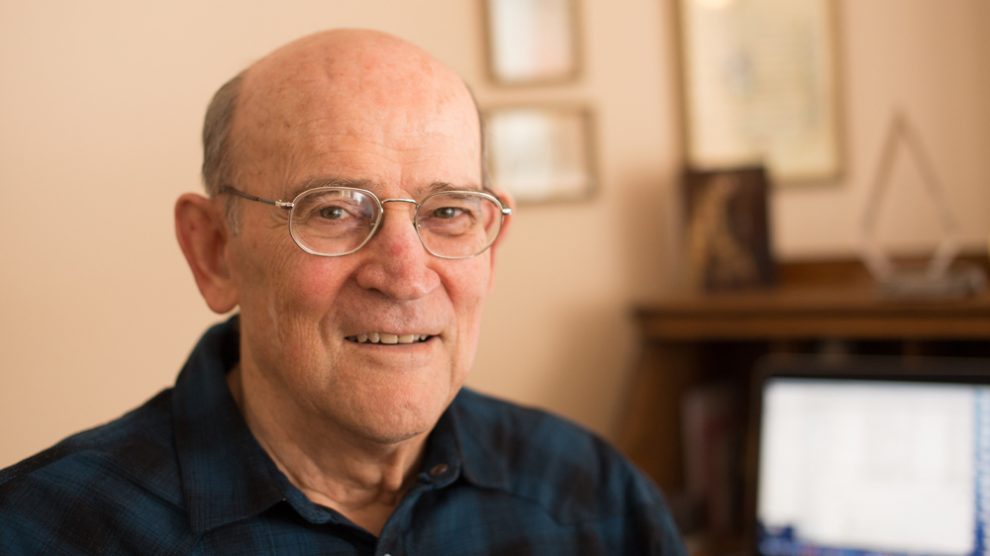There is an old saying that goes, “If the light that is in you is darkness, how great is the darkness.” In reality, darkness is simply the absence of light. The problem lies in the fact that darkness can be presented as light.
On Independence Day, Americans celebrate their liberty. That liberty is defined and preserved by law. That law was understood as “the law of nature and of nature’s God.” Liberty and license must never be treated as synonyms. Liberty without law produces anarchy, rebellion, revolution, and dehumanization.
Let me suggest some possible ways that darkness has been camouflaged as light.
Paul Goodman in his book, Growing Up Absurd states: “Man is what suits a particular type of society in a particular historical stage. Society is not created to suit man and his humanness, but man is socialized and educated to conform to society. In fact, it is not that man is educated to conform but that education itself is culture forming.”
John Dewey said, “..the battle for mankind’s future must be waged and won in the public school classroom by teachers who correctly perceive their role as the proselytizer of a new faith; a religion of humanity…utilizing a classroom instead of a pulpit to convey humanist values in whatever subject they teach…”
John Dewey was the main architect of Humanist Manifesto One (1933) Four of its main points were:
- The universe is self-existent, not created
- The universe as depicted by modern science makes unacceptable any supernatural or cosmic guarantees of human values
- Religious humanism considers the complete realization of human personality to be the end of man’s life and seeks its development in the here and now.
- In place of the old attitudes involved in worship and prayer, the humanist finds his religious emotions expressed in a heightened sense of personal life and in co-operative effort to promote social well-being.
Among other things, Manifesto Two (1973) states:
- Moral values derive source from human experience. Ethics is autonomous and situational needing no ideological or theological sanction.
- Religion curbs sexual freedom.
Herbert Schiller in The Mind Managers, states: “Wherever one looks in the social sphere, neutrality and objectivity are invoked to describe the functioning of value-laden and purposeful activities which lend support to the prevailing institutional systems. Essential to the everyday maintenance of the control system is the carefully nurtured myth that no special groups or views have a preponderate influence on the country’s decision-making process.”
Intellectual enlightenment has darkened the mind to the reality of absolute timeless standards. Our culture says that we are committing “moral imperialism” if we suggest that there are standards of conduct that are simply better than others. It is definitely wrong to be intolerant or to say anything that might make another uncomfortable or damage “self-esteem”.
Our culture is obsessed with “victimization” and “empowerment” within an increasingly vapid framework of “values clarification.” But where are the ethical standards that will establish the values? What is the value of empowerment if there is no ultimate reason for existence?
A genuine concern for the self-esteem of people within our society and in fact any social order, will cause us to lift up a standard that establishes a universally applicable ethic that gives dignity and honor to all people.
We have obscured the line between good and evil, noble and base. Man has become the evaluator. Society becomes the sum of individual preferences. Good is measured by outcomes not inherent value.
The enticement of radical individualism could be called “Collective Schizophrenia”. It represents the tension in our society of the many and the individual. Personal pleasure is at the apex of personal pursuit. My freedom and my happiness take priority over the collective good. We have a society full of possessions but drained of ideals. The caring community has evolved into the community of convenience.
Dostoyevsky’s Diagnosis (1821-1881): “Without God everything is permissible; crime is inevitable.” Dostoyevsky recognized that if you remove God from the equation of life you have no basis for establishing value, purpose, destiny or law.
I’ll see you at the top where there is a liberating light of life, love and loyalty.
Duane Harder


























